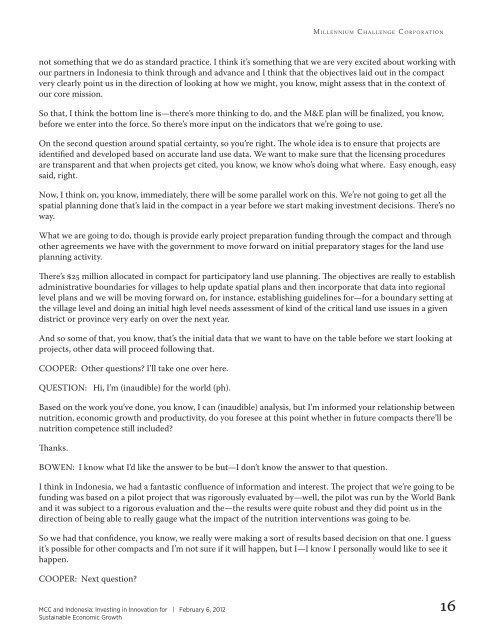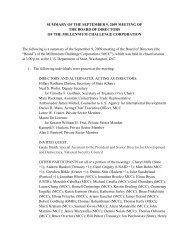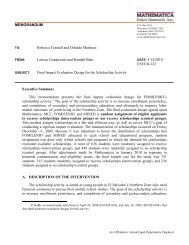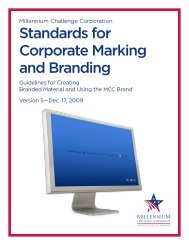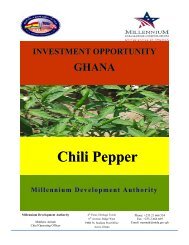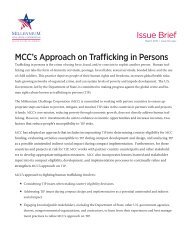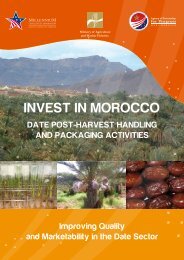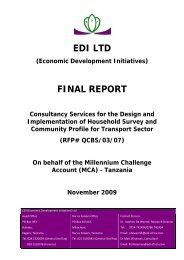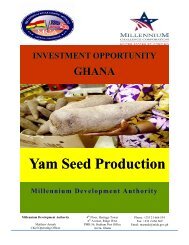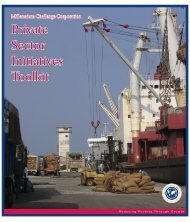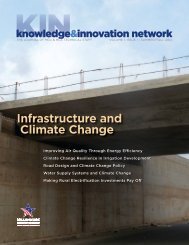Transcript - Millennium Challenge Corporation
Transcript - Millennium Challenge Corporation
Transcript - Millennium Challenge Corporation
Create successful ePaper yourself
Turn your PDF publications into a flip-book with our unique Google optimized e-Paper software.
not something that we do as standard practice. I think it’s something that we are very excited about working with<br />
our partners in Indonesia to think through and advance and I think that the objectives laid out in the compact<br />
very clearly point us in the direction of looking at how we might, you know, might assess that in the context of<br />
our core mission.<br />
So that, I think the bottom line is—there’s more thinking to do, and the M&E plan will be finalized, you know,<br />
before we enter into the force. So there’s more input on the indicators that we’re going to use.<br />
On the second question around spatial certainty, so you’re right. The whole idea is to ensure that projects are<br />
identified and developed based on accurate land use data. We want to make sure that the licensing procedures<br />
are transparent and that when projects get cited, you know, we know who’s doing what where. Easy enough, easy<br />
said, right.<br />
Now, I think on, you know, immediately, there will be some parallel work on this. We’re not going to get all the<br />
spatial planning done that’s laid in the compact in a year before we start making investment decisions. There’s no<br />
way.<br />
What we are going to do, though is provide early project preparation funding through the compact and through<br />
other agreements we have with the government to move forward on initial preparatory stages for the land use<br />
planning activity.<br />
There’s $25 million allocated in compact for participatory land use planning. The objectives are really to establish<br />
administrative boundaries for villages to help update spatial plans and then incorporate that data into regional<br />
level plans and we will be moving forward on, for instance, establishing guidelines for—for a boundary setting at<br />
the village level and doing an initial high level needs assessment of kind of the critical land use issues in a given<br />
district or province very early on over the next year.<br />
And so some of that, you know, that’s the initial data that we want to have on the table before we start looking at<br />
projects, other data will proceed following that.<br />
COOPER: Other questions? I’ll take one over here.<br />
QUESTION: Hi, I’m (inaudible) for the world (ph).<br />
Based on the work you’ve done, you know, I can (inaudible) analysis, but I’m informed your relationship between<br />
nutrition, economic growth and productivity, do you foresee at this point whether in future compacts there’ll be<br />
nutrition competence still included?<br />
Thanks.<br />
BOWEN: I know what I’d like the answer to be but—I don’t know the answer to that question.<br />
I think in Indonesia, we had a fantastic confluence of information and interest. The project that we’re going to be<br />
funding was based on a pilot project that was rigorously evaluated by—well, the pilot was run by the World Bank<br />
and it was subject to a rigorous evaluation and the—the results were quite robust and they did point us in the<br />
direction of being able to really gauge what the impact of the nutrition interventions was going to be.<br />
So we had that confidence, you know, we really were making a sort of results based decision on that one. I guess<br />
it’s possible for other compacts and I’m not sure if it will happen, but I—I know I personally would like to see it<br />
happen.<br />
COOPER: Next question?<br />
MCC and Indonesia: Investing in Innovation for | February 6, 2012<br />
Sustainable Economic Growth<br />
16


